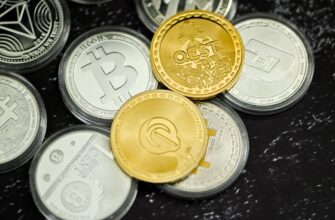## Introduction to Cryptocurrency in Saudi Arabia
The Kingdom of Saudi Arabia (KSA) is witnessing a transformative shift in its financial landscape with the emergence of cryptocurrency. As blockchain technology gains global traction, Saudi investors and regulators are actively exploring digital assets like Bitcoin and Ethereum. This comprehensive guide examines cryptocurrency in KSA – covering current regulations, investment opportunities, security practices, and the nation’s ambitious fintech roadmap. With Saudi Vision 2030 driving technological innovation, understanding crypto’s role in the Kingdom is essential for traders, businesses, and tech enthusiasts alike.
## Current Crypto Regulations in Saudi Arabia
The Saudi Central Bank (SAMA) maintains a cautious yet progressive stance on cryptocurrency. While not recognized as legal tender, crypto trading isn’t explicitly banned. Key regulatory highlights include:
– **SAMA’s Sandbox Program**: Allows fintech firms to test blockchain solutions under regulatory supervision
– **Anti-Money Laundering Rules**: Mandatory KYC verification for all crypto exchanges operating in KSA
– **Public Warnings**: Regular advisories about crypto volatility and unregulated platforms
– **Collaboration with UAE**: Joint “Aber” digital currency project exploring cross-border payments
Regulatory clarity is expected to increase as Saudi Arabia develops its National Fintech Strategy.
## How to Buy Cryptocurrency in KSA Safely
Saudi investors can access cryptocurrencies through international exchanges with proper compliance:
1. **Choose Regulated Platforms**: Select exchanges like Binance or eToro that implement SAMA’s KYC requirements
2. **SAR Deposit Methods**: Use bank transfers or debit cards supporting Saudi Riyal deposits
3. **Secure Storage**: Transfer assets to hardware wallets (e.g., Ledger) after purchase
4. **Tax Compliance**: Document transactions for potential future tax reporting
Top beginner-friendly platforms in KSA include Rain (Bahrain-based, serving KSA) and CoinMENA, both offering SAR trading pairs.
## Popular Cryptocurrencies Among Saudi Investors
Market trends show Saudi traders favoring these digital assets:
– **Bitcoin (BTC)**: 65% of Saudi crypto portfolios include BTC as “digital gold”
– **Ethereum (ETH)**: Preferred for smart contracts and NFT projects
– **Ripple (XRP)**: Popular for cross-border remittances to countries like Pakistan and India
– **Local Projects**: Saudi-based tokens like HalalChain gaining traction in Islamic finance circles
Sharia-compliance concerns drive interest in tokens certified by Bahrain’s Shariyah Review Bureau.
## Blockchain Initiatives Driving KSA’s Digital Economy
Saudi Arabia is leveraging blockchain beyond cryptocurrencies:
– **NEOM Smart City**: Implementing blockchain for supply chain and identity management
– **Saudi Customs**: Using distributed ledgers for import/export documentation
– **Healthcare**: Securing patient records through MedChain collaborations
– **Government Services**: Exploring blockchain for real estate registries and voting systems
These initiatives align with Vision 2030 goals to digitize 70% of citizen transactions by 2030.
## Risks and Security Best Practices
Cryptocurrency investors in Saudi Arabia should mitigate these risks:
– **Market Volatility**: Crypto prices can fluctuate over 30% in 24 hours
– **Scam Platforms**: Avoid “guaranteed returns” schemes targeting Gulf investors
– **Phishing Attacks**: Enable 2FA and avoid public WiFi for transactions
– **Regulatory Shifts**: Monitor SAMA announcements for policy changes
Always follow the golden rule: Never invest more than 5% of your portfolio in high-risk assets.
## Future Outlook: Crypto in Saudi Vision 2030
Saudi Arabia’s crypto trajectory shows promising developments:
– **Digital Riyal Pilot**: Potential CBDC launch by 2025
– **Crypto Oasis Riyadh**: Dubai-style hub for blockchain startups
– **Islamic Fintech**: Growth of Sharia-compliant DeFi platforms
– **Miner Regulations**: Possible framework for sustainable mining operations
As regional rival UAE advances crypto regulations, competitive pressure may accelerate KSA’s adoption timeline.
## Frequently Asked Questions (FAQ)
### Is cryptocurrency legal in Saudi Arabia?
While not illegal, cryptocurrencies lack legal tender status. SAMA permits trading through regulated international exchanges but prohibits local crypto payment processing. Regulatory frameworks continue evolving.
### What’s the best crypto exchange for Saudi residents?
Platforms like Rain (licensed by Bahrain’s central bank) and global leaders Binance/Coinbase are popular. Key factors include SAR deposits, Arabic support, and SAMA-compliant KYC procedures.
### How are cryptocurrencies taxed in KSA?
Currently no specific crypto tax laws exist, but capital gains may fall under general income tax for businesses. The Zakat and Tax Authority hasn’t issued formal guidance – maintain transaction records for compliance.
### Can I use crypto for payments in Saudi Arabia?
Direct crypto payments remain prohibited. However, crypto-to-gift-card services allow indirect spending at major retailers. SAMA is testing digital currencies for future payment systems.
### Does Saudi Arabia have its own cryptocurrency?
No national cryptocurrency yet exists, but Project Aber (with UAE) explores a joint digital currency. Several Saudi fintech startups are developing Sharia-compliant tokens for specific use cases.
## Final Thoughts
Cryptocurrency in KSA represents both challenge and opportunity. While regulatory caution persists, Saudi Arabia’s $1 billion fintech investment fund and blockchain integration in mega-projects signal serious commitment. As global institutions like BlackRock enter crypto, Saudi investors have unprecedented access to digital assets – provided they prioritize security and regulatory awareness. The coming years will likely see cryptocurrency become an integrated component of Saudi Arabia’s diversified, tech-driven economy.








